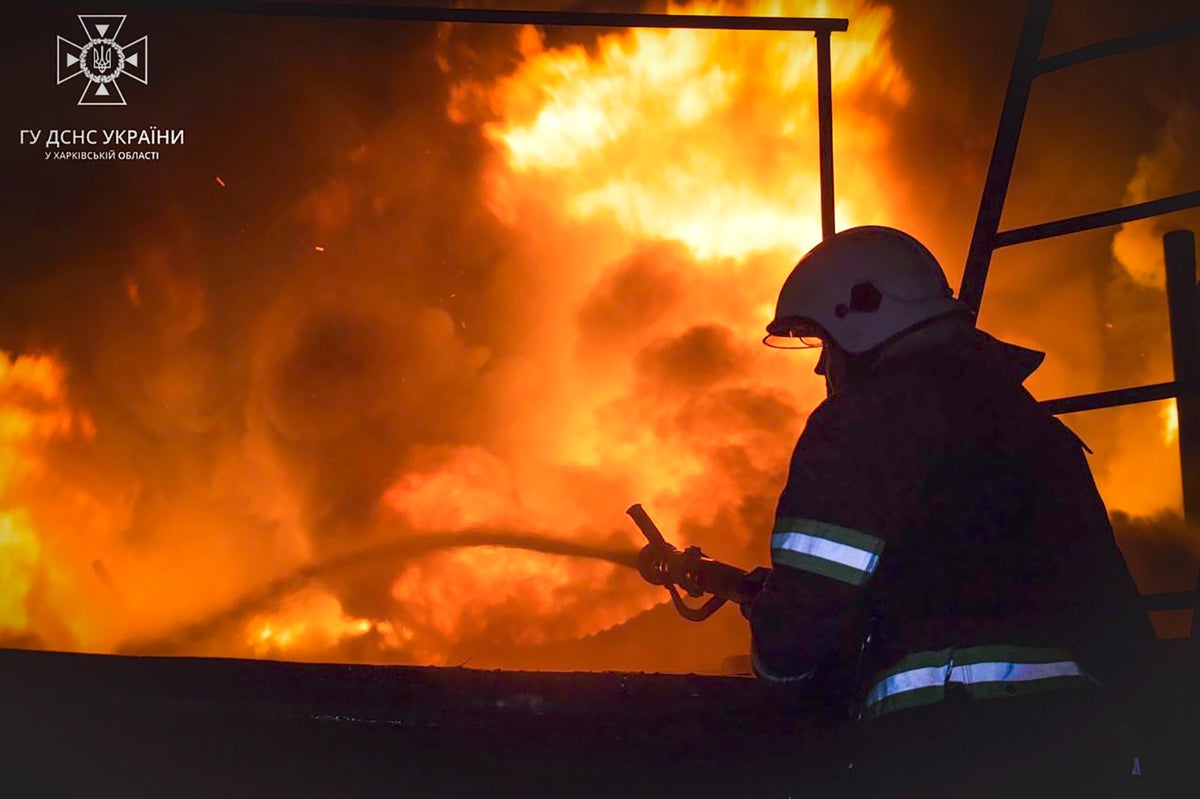
Russia unleashed a wave of nighttime drone and missile attacks across 10 of Ukraine’s 24 regions, Ukrainian authorities said Friday as they prepare for another winter of infrastructure bombardment by the Kremlin’s forces.
Ukraine’s air force said it intercepted 24 of 38 Shahed drones and one Kh-59 cruise missile launched by Russia.
The attacks caused fires in homes and public buildings, especially in the southern Kherson region which Moscow has increasingly targeted in recent weeks, emergency services said. Authorities reported that two people were injured.
“We understand that as winter approaches, Russian terrorists will attempt to cause more harm,” Ukraine President Volodymyr Zelenskyy said on Telegram after the attacks, employing his usual choice of words for the enemy’s forces.
Last winter, Russia took aim at Ukraine’s power grid in an effort to deny civilians light and heating and chip away at the country’s appetite for war. Ukrainian officials accused the Kremlin of weaponizing winter.
The Russian strikes are inflicting “unimaginable levels of suffering” on Ukrainian civilians, according to Ramesh Rajasingham, coordination director in the U.N. humanitarian office.
Andriy Yermak, the president’s chief of staff, said Russia had expanded the number of drones it uses in its routine nighttime attacks as winter approaches.
“The battle for the sky is what awaits us,” he said on Telegram.
Laser-guided munitions designed to take out drones are expected to be part of a $425 million package of new U.S. military aid to Ukraine, according to U.S. officials.
The coming wet, muddy and cold weather will likely frustrate both sides’ efforts to advance on the battlefield, compelling a change in military tempo.
Russia and Ukraine will be building up ammunition stockpiles for offensives in 2024, analysts say. Ukraine is relying heavily on its Western allies and plans to ramp up its own weapons manufacturing while Russia buys from North Korea, Iran and Belarus.
Both armies are struggling to make major progress along the 1,500-kilometer (930-mile) front line in what is largely an artillery war. Ukraine’s commander-in-chief, Gen. Valerii Zaluzhnyi, said in published remarks this week that artillery, missile and rocket fire account for up to 80% of all military tasks.
Ukraine’s forces can now wear down Russian logistics and command centers behind the front line using U.S. long-range ballistic missiles, known as ATACMS, and U.K long-range Storm Shadow cruise missiles.
The planned delivery of F-16 fighter jets to Ukraine in the first part of next year will also improve Kyiv’s military might. Its monthslong counteroffensive to push back Russian troops has taken place without air cover.







